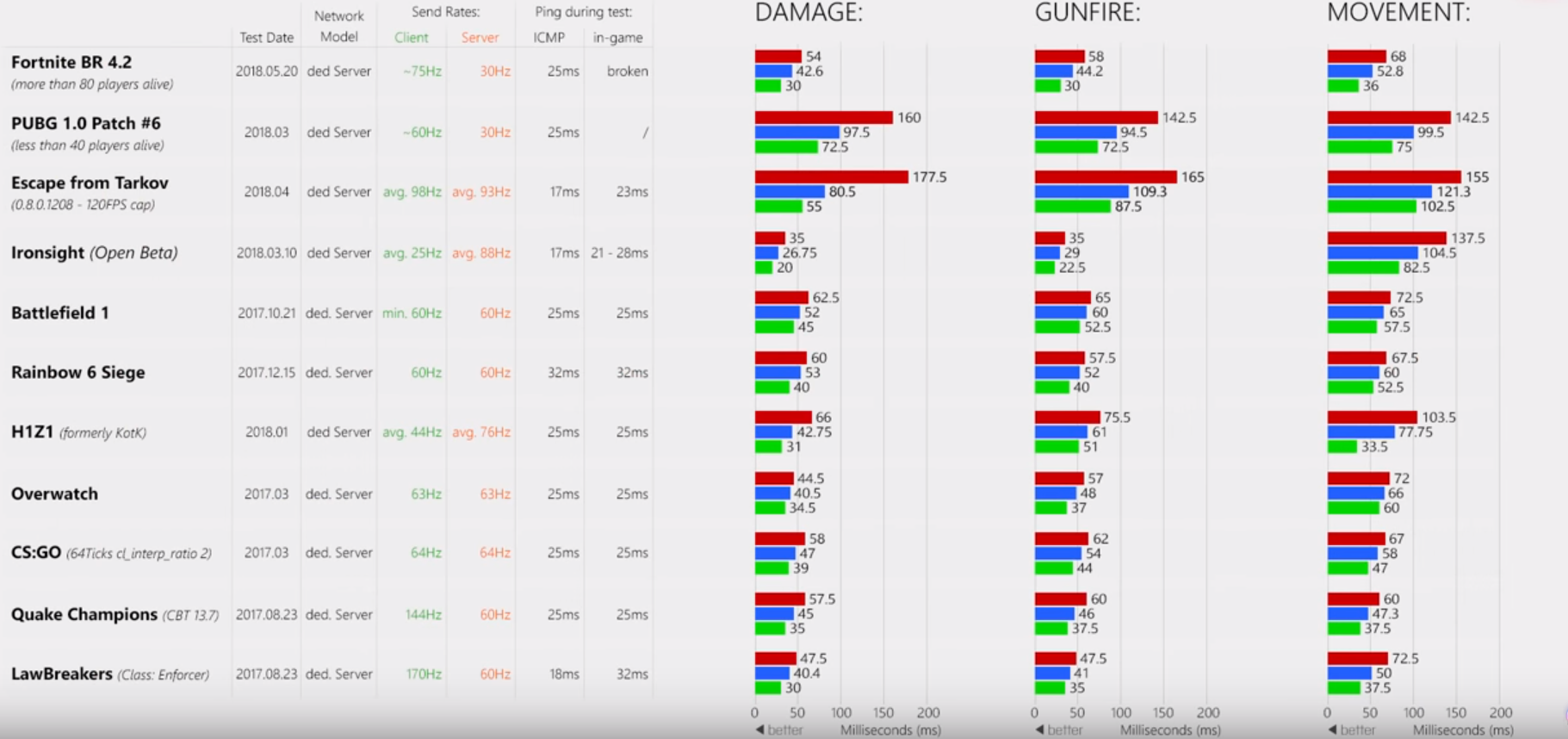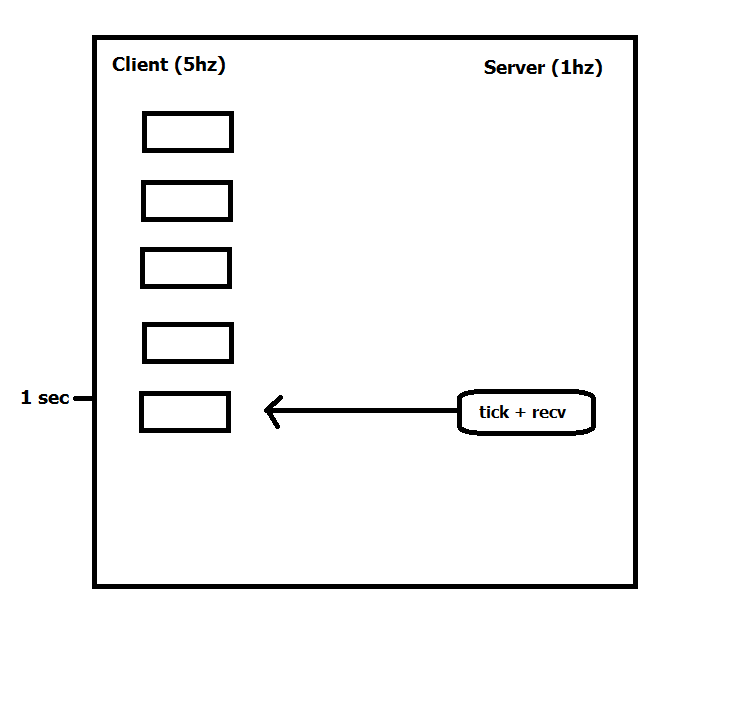I currently have a game server with a customizable tick rate, but for this example let's suggest that the server is only going to tick once per second or 1hz. I'm wondering what's the best way to handle incoming packets if the client send rate is faster than the server's as my current setup doesn't seem to work.
I have my udp blocking receive with a timeout inside my tick function, and it works, however if the client tick rate is higher than the server, all of the packets are not received; only the one that is being read at the current time. So essentially the server is missing packets being sent by clients. The image below demonstrates my issue.
So my question is, how is this done correctly? Is there a separate thread where packets are read constantly, queued up and then the queue is processed when the server ticks or is there a better way?
Image was taken from a video https://www.youtube.com/watch?v=KA43TocEAWs&t=7s but demonstrates exactly what I'm explaining


